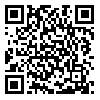Background and Objective: Self-efficacy, one's belief in his ability to succeed in different situations, can have positive or negative effects on mental health. Students are considered as the community builders, and thus paying attention to their psychological dimensions is a paramount importance to health of community. This study aimed at determining the relationship of self–efficacy and mental health with academic achievement of students in Bam nursing school.
Material and Methods: This descriptive study was conducted on all students with eligibility criteria in 2011. The instruments were General Self–Efficacy Scale (GSES), Symptom Checklist-25 (SCL-25) and Grade Point Average (GPA) for academic achievement. To analyze the data, we used Ttest, ANOVA and Pearson correlation.
Results: The level of self-efficacy was weak in 3.6 %, moderate in 84.8 % and strong in 11.5% of students. Regarding mental health aspects, the highest score was related to psychotism and depression (4.21) and the lowest to Obsessive-compulsive (3.43). The mental health of students with strong self-efficacy was higher than that of others. GPA was not correlated significantly with self-efficacy (p=0.44, r=0.062) and mental health status (p=0.96, r=0.044).
Conclusion: Mental health and academic achievement are not adequate therefore, we recommend planning some educational program based on self-efficacy theory to improve both mental health and academic achievement.
| Rights and permissions | |
 |
This work is licensed under a Creative Commons Attribution-NonCommercial 4.0 International License. |


